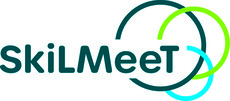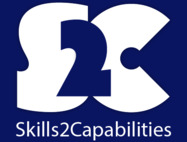PROJECTS
Featuring a diverse array of Horizon research projects such as Link4Skills, SKILLAB, SkiLMeeT, SKILLS4JUSTICE, TECHNEQUALITY, TRAILS, iRead4Skills, MEGASKILLS, and SKILLS2CAPABILITIES. Each project offers unique insights and solutions addressing skill shortages and promoting skills development across various sectors.

Link4Skills | Izabela Grabowska (PL)
Link4Skills is a global research and innovation project on skill shortages. The acronym reflects the objectives of the call by linking for/4 fair skill matching. It embeds 4 processes of responding to skill shortages: re/up skilling of established populations (incl. migrants and inactive women), raising wages, automation and migration. It considers 4 continents: Europe, Africa, Asia and America, where skill shortages and skill flows will be analysed. It develops the AI-Assisted Skill Navigator for stakeholders from employment, vocational training organisations in origins and destinations.

SKILLAB | Konstantinos Georgiou (CC)
SKILLAB is a project focused on addressing skills shortages in the labor market. It plans to achieve this by identifying gaps, supporting enterprises in human resource strategies, aiding recruiting efforts, and assisting EU citizens in skill development for job opportunities. The project will implement an intelligent platform using advanced technologies to provide accessible recommendations on HRM, education, and digital policies, aiming to contribute to a multi-faceted assessment of the labor market.

SkiLMeeT | Ludvine Martin (LU)
The project SkiLMeeT (Skills for labour markets in the digital and green transition) aims to generate data on labor and skills shortages in Europe, explore drivers of these gaps, and identify pathways to address skill shortages. The project contributes to achieving workforce goals, emphasizing reskilling and upskilling, and unlocking the potential of digital and green transitions in Europe. Using an inter- and transdisciplinary approach with diverse data sources, including surveys and big data, SkiLMeeT provides valuable insights into shortages, their drivers, and potential solutions. Through extensive consultations, feedback loops, and stakeholder engagement, the project validates analyses and develops concrete policy proposals for a thriving economy and inclusive society, maximizing its impact through widespread dissemination to policymakers and the public.
![]()
SKILLS4JUSTICE | Vidmantas Tūtlys (LT)
SKILLS4JUSTICE focuses on conducting a systemic analysis of skills shortages in five EU countries (France, Germany, Italy, Poland, Lithuania) and six non-EU countries (Turkiye, UK, Norway, North Macedonia, Ukraine, Ethiopia) amidst global workforce migration. The research aims to provide evidence on the nature and development of skill shortages and explore the potential of skills partnerships in addressing these shortages in both migrant destination and origin countries. The four main research objectives include designing a shortage model for skilled worker recruitment, evaluating labor markets to assess workforce needs and shortages, surveying skilled migrant workers for their perspectives, and analyzing conditions influencing local development and foreign upskilling in destination countries. The project also aims to prepare a toolkit for implementing skills partnerships, facilitating sustainable investments, and addressing challenges related to skill shortages and migration.

TECHNEQUALITY | Mark Levels (NL)
The TECHNEQUALITY project addresses the societal impact of recent technological advancements, focusing on shifting skill requirements in labor markets. Unlike traditional approaches, it aims to forecast labor market consequences, assess automation rates, and explore education and welfare roles. The initiative seeks to guide governments in responding effectively to these changes, fostering equitable outcomes and stimulating policy debates at all levels.

TRAILS | Georgios Panos (GR)
TRAILS adopts a comprehensive approach to identify conditions for skills gaps in European countries and contribute to policy actions. Utilizing conceptual models and new methodologies, it incorporates diverse datasets, including big datasets from administrative records, inquiries with secondary datasets, field and stated-preference experiments, and boost samples for specific groups. This multifaceted approach aims to create a framework for understanding optimal skills matching, considering behavioral, societal, and cultural dimensions. TRAILS also proposes aims for basic and transferable skills conducive to European labor mobility in green and digital jobs. Using AI methods, the project intends to develop a web-based tool for policymakers and citizens, providing insights and awareness on transferable skills and training.

YOUNG_ADULLLT | Sebastiano Benasso (IT)
YOUNG_ADULLLT aims to examine the compatibility and impact of European Lifelong Learning (LLL) policies on young adults by assessing their orientations, objectives, and unintended effects. It seeks to generate new knowledge about regional and local policymaking, emphasizing the interaction and complementarity of LLL policies with other societal sectors, aiming to address current fragmentation and discrepancies. The project’s contributions include insights into the effectiveness of LLL policies on young adults’ life courses, understanding the structural relationships between education/training and the labor market, and conducting a comprehensive review of regional policies to identify successful programs for integrating labor market and social inclusion.

CLEAR | Jozef Zelinka (DE)
CLEAR – ‘Constructing Learning Outcomes in Europe. A multi-level analysis of (under)achievement in the life course’, aims to understand the various factors shaping learning outcomes, utilizing multi-level analyses across 8 EU countries. With a focus on disadvantaged groups, the research integrates dynamic concepts like Life Course and Spatial Justice, adopting an innovative participatory approach to involve stakeholders in shaping education policy.
![]()
iRead4Skills | Raquel Amaro (PT)
The iRead4Skills project focuses on reducing reading skills gaps by investigating how improved literacy skills impact fundamental and transversal skills. The project aims to create an Intelligent Reading Improvement System that evaluates text complexity based on literacy levels. This system is intended to assist trainers and text producers in developing or adapting texts with the appropriate level of complexity for target readers. The goal is to promote literacy and enhance various skills, including numeracy, ICT skills, and transversal skills such as communication, teamwork, foreign language proficiency, customer handling, problem-solving, learning, and planning and organization.
![]()
MEGASKILLS | Leire Bastida (ES)
MEGASKILLS (MEthodology of Psycho-pedagogical, Big Data and Commercial Video GAmes procedures for the European SKILLS Agenda Implementation) addresses the challenge of developing and evaluating soft skills crucial for the European Skills Agenda. Soft skills, including communication, teamwork, time management, and decision-making, are challenging to quantify but vital for the workforce. The project aims to bridge critical gaps by creating an innovative methodology for soft skills taxonomy aligned with industry and education needs. Leveraging data from players’ interactions with video games, the project will employ AI and machine-learning algorithms to develop effective and affordable training and assessment techniques for soft skills.

SKILLS2CAPABILITIES | Emily Erickson and Jörg Markowitsch (UK/AT)
The SKILLS2CAPABILITIES project aims to enhance skills systems to facilitate smooth labor market transitions and reduce skills mismatches. It focuses on identifying the capabilities individuals need for effective transitions between jobs, employers, and sectors. The study assesses current and future skills demand and how these capabilities are reflected in vocational education and training. The research seeks to provide decision-makers with insights into the necessary capabilities for future skills systems.
GS4S | Colleen Boland (NL)
In light of EU challenges relating to an aging workforce and the energy transition, the EU faces a shortage of relevant skills. GS4S seeks to better understand global skills shortages in selected sectors (Digital, Care and Construction), strengthens evidence-based policies through new evidence on various overlooked global mobility schemes.The project analyzes strategies of Multinational Enterprises and Small- and Medium Enterprises in filling shortages, alongside skilled migrant workers’ experiences in EU and non-EU regions. Through multi-level policy proposals and mixed-methods research, GS4S provides actionable data and tools for policymakers and businesses, fostering sustainable global strategies for skills, migration, and development.